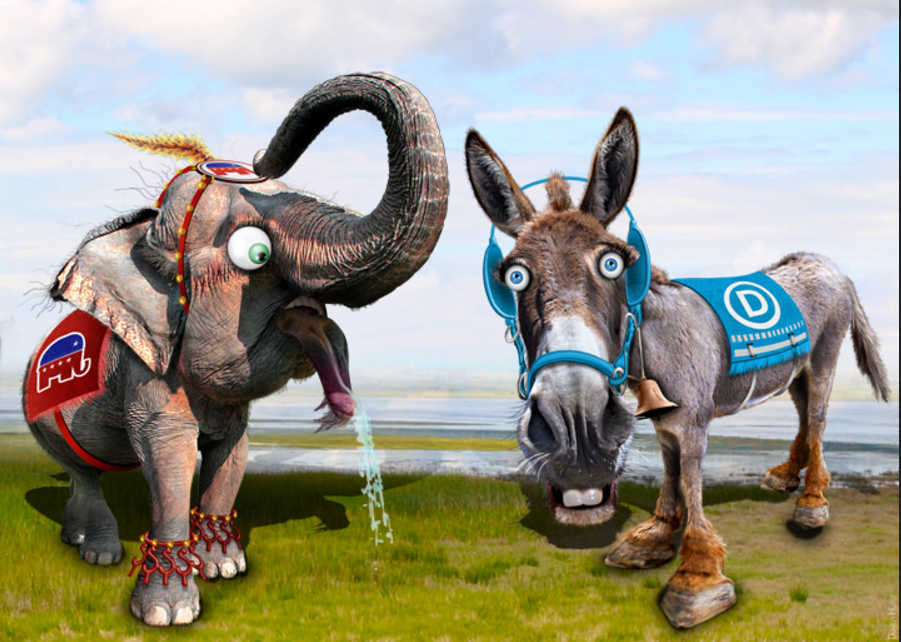By Jerry Mooney
In America, we hold a moral high ground on the issue of democracy. We espouse that it is important. There are efforts to Rock the Vote and if you ever talk to a senior citizen about politics, their first question will be, “Did you vote?” And if you didn’t, don’t expect them to let you complain. The United States has gone to war to over ostensible threats to democracy. Because of this, it is not only disillusioning but heartbreaking to see what is happening in the United States of America during this primary season.
We have witnessed in the last month political shenanigans that are at best embarrassing incompetence, but more likely are criminal and subversive actions. And the most disheartening component of these ruthless activities is that they are not limited to the Republicans. In fact, they have been largely perpetrated on the Democratic side. Donald Trump has a legitimate complaint that his campaign is subject to foul play, but I expect such things from the party of the elites. They don’t want their establishment politics disrupted. On the left, however, things might even be worse.
First of all let’s just say it: there are a lot of practices that are designed to suppress the vote, from elections held on Tuesdays to registration requirements. These things have been in place for so long we don’t even recognize their implicit impact on voting. But these types of practices have gone farther recently and by the party that usually wants greater turnout: the Democrats.
Part of the trickery comes in the form of labeling. Democrats have long been the liberal option for voters. But there are many in the country who are more left than the main Democrats, and that’s particularly true now, as the Republicans have pulled the center of the Democratic party to the right. Now there is a legitimate liberal option in Bernie Sanders, and the Democratic party seems insistent on keeping his supporters from exercising their choice.
In Arizona, a not-so-surprising state of corruption against liberals and in the surprisingly left leaning New York, voter suppression tactics were employed, giving disproportionate weight to early voters and voters in particular precincts. These tactics skewed the results and left hundreds of thousands, if not millions of voters in just those two states without a voice.
This is particularly relevant when the spirit of this election one of antiestablishment. This has also meant that these practices are underreported by the establishment media. In fact, the result of Nevada caucus was changed, but the media continues to report the old results. This weakens enthusiasm because there is a sense that either the result is already determined or there are forces in play that make our voices irrelevant. Either way, they suppress democracy.
What’s even worse is the fact that this, according to Portland State University, is tantamount to white collar crime:
- Governmental /state-corporate: activities committed on behalf of governments or by government officials, as well as white collar crimes committed in collusion with a corporate or organizational entity
Back in August, before a single delegate was won or lost, the Peoria Report at George Washington School of Political Management was reporting that Hillary Clinton had the nomination locked up. This narrative has created shade for the corruption and shenanigans that have followed during the primaries. Many pundits go as far as to say with a straight face that Bernie only does well in caucuses, never pointing out that caucuses require that the voters are seen. When this happens, overwhelming numbers can’t be ignored, because the visuals make it obvious. Because of this narrative, when voter suppression tactics are employed and work, the media can ignore them and complaints that they happened sound like sour grapes.
Ultimately, people are beginning to feel the process has been compromised. Our values as a democracy have been one person, one vote. This shouldn’t matter if you are an extreme liberal or conservative. Your voice should count. The current system is estranging not only huge swaths of voters, but perhaps whole generations and that could have long lasting impacts.
Feature photo courtesy of Flickr, under Creative Commons Attribution-Noncommercial license



Recent Comments